Hiring a construction project manager is one of the most important decisions you’ll make when embarking on a building project. A project manager plays a pivotal role in ensuring your project runs smoothly, stays on schedule, and remains within budget. However, selecting the right person for the job requires careful thought. Not all construction projects are the same, and the expertise of the project manager must align with your specific needs.
Here are the key considerations to keep in mind before hiring a construction project manager.
1. Experience and Expertise
The most important factor to consider is the project manager’s experience. Construction projects are complex, and experienced project managers know how to handle unexpected challenges, delays, and changes.
Relevant Experience: Look for a project manager with experience in projects similar to yours. For example, residential construction differs from commercial or industrial projects. If your project involves sustainable or green building, you’ll want someone with expertise in that area.
Track Record of Success: Ask for examples of past projects the project manager has successfully overseen. Check their ability to complete projects on time and within budget. Review client testimonials and case studies to verify their track record.
2. Budget Management Skills
One of the main responsibilities of a project manager is managing the budget. Construction projects often experience unforeseen expenses, so it’s essential to hire someone skilled in budget oversight.
Cost Control Experience: The project manager should be adept at monitoring and controlling project costs. This involves keeping track of expenses, negotiating contracts, and managing payments to subcontractors. They should also be able to forecast costs and identify potential budget risks early.
Transparency in Budget Reporting: A good project manager provides regular, transparent updates on spending. Look for someone who can provide detailed financial reports throughout the project and offer solutions for cost overruns.
3. Effective Communication Skills
Clear and consistent communication is key to the success of any construction project. The project manager serves as the central point of contact between all stakeholders, including the client, contractors, subcontractors, suppliers, and inspectors.
Regular Updates: A reliable project manager will provide regular updates on project progress, potential challenges, and any changes to the timeline or budget. They should be proactive in addressing concerns and ensuring all stakeholders are informed.
Conflict Resolution: Construction projects can experience conflicts among various parties. A good project manager should have strong conflict resolution skills to manage disputes efficiently and maintain a positive working environment.
4. Scheduling and Time Management
Timelines are critical in construction projects, and delays can lead to increased costs and frustration. A skilled project manager ensures that the project stays on track and deadlines are met.
Scheduling Expertise: A good project manager will develop a detailed project schedule that includes milestones, deadlines, and contingencies for potential delays. Look for someone who has experience creating and managing realistic timelines.
Time Management: The project manager should be able to efficiently coordinate tasks, subcontractors, and material deliveries to avoid downtime. Their time management skills are crucial for preventing bottlenecks and ensuring the project progresses smoothly.
5. Knowledge of Local Building Codes and Regulations
Every construction project must comply with local building codes, zoning laws, and regulations. A project manager who understands the legal requirements in your area will save you time, money, and legal issues down the line.
Permits and Inspections: A knowledgeable project manager will handle obtaining the necessary permits and scheduling inspections. They should also be familiar with any environmental, safety, and labor regulations that apply to the project.
Regulatory Compliance: Failing to comply with building codes and regulations can result in fines, delays, or even the halting of the project. Make sure your project manager has a strong understanding of the relevant rules and regulations in your region.
6. Problem-Solving and Risk Management Abilities
Construction projects are inherently unpredictable, and issues such as weather delays, supply shortages, and labor disputes can arise. An effective project manager is prepared to handle these challenges and develop solutions quickly.
Risk Mitigation: The project manager should assess potential risks at the start of the project and create contingency plans. Identifying risks early can help prevent costly delays or budget overruns.
Problem-Solving Skills: When problems arise, the project manager should be able to think on their feet and resolve them without compromising the project’s quality or timeline. Ask for examples of how they’ve handled unexpected challenges in past projects.
7. Contract Negotiation and Management
Your project manager will oversee contract negotiations with contractors, subcontractors, suppliers, and vendors. Their ability to negotiate fair terms and manage contracts directly impacts the project’s success.
Negotiation Skills: The project manager should be able to secure favorable terms, ensuring you get the best value for your money. They should also be experienced in managing contract disputes should they arise.
Vendor and Contractor Relationships: Established relationships with reputable vendors and contractors can help your project run more smoothly. Ask the project manager about their network of contacts and how they select subcontractors.
8. Technical Knowledge
While project management skills are essential, technical knowledge of construction processes, materials, and techniques is also important. A project manager with a solid understanding of the technical aspects of construction will be able to make informed decisions and offer valuable insights.
Understanding Construction Techniques: A project manager should be familiar with the technical details of construction methods, materials, and equipment. This allows them to identify potential issues before they become costly problems.
Quality Control: The project manager should ensure that all work meets industry standards and the client’s specifications. Their technical knowledge helps them oversee quality control and ensure that all phases of construction are executed correctly.
9. Alignment with Your Project Goals
Every construction project has unique goals, whether it’s a tight timeline, a strict budget, or specific design requirements. Your project manager should understand and align with your priorities.
Goal-Oriented: During the hiring process, communicate your goals clearly and assess how well the project manager aligns with them. Are they focused on delivering quality, or do they prioritize speed and cost-cutting? Make sure their approach matches your expectations.
Flexibility: Even with careful planning, projects can change. A good project manager is flexible and can adapt to new circumstances while still keeping the project on track.
10. Reputation and References
A construction project manager’s reputation is a strong indicator of their reliability and competence. Always check references and reviews from previous clients and contractors before making your final decision.
Client Testimonials: Ask for references from past clients who had similar projects. Find out how the project manager handled challenges, managed the budget, and communicated with the client.
Industry Reputation: Contractors and suppliers often work with the same project managers on multiple projects. Ask for feedback from industry professionals to get a sense of how well the project manager works with others.
Conclusion
Hiring a construction project manager is a crucial decision that will directly impact the success of your project. By considering their experience, communication skills, budgeting expertise, and knowledge of local regulations, you can ensure you select the right professional for the job. A skilled project manager will help you avoid costly mistakes, stay within budget, and meet your project goals. With the right project manager on board, you’ll have peace of mind knowing your construction project is in capable hands.



[…] One of the best decisions you can make when building a new home is to hire a residential construction project manager. It is a safe assumption that one of the reasons you are hiring a project manager is because you do not believe you have the experience to run the project on your own, but […]